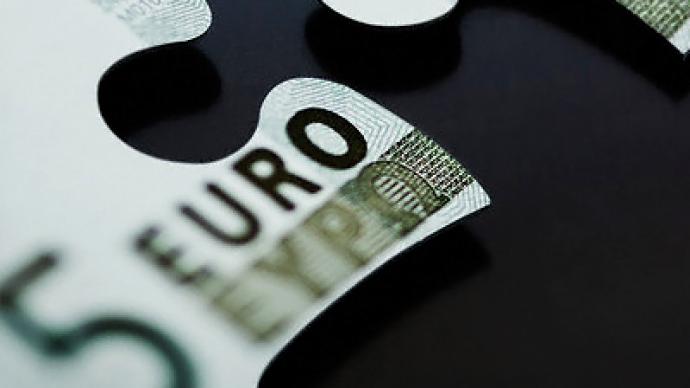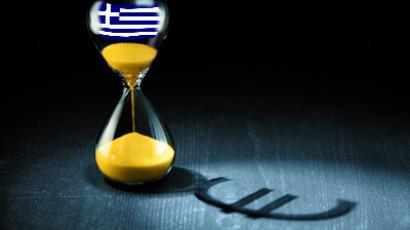The Euro, the Eurozone and Russia

With concerns about the future of the Euro reaching a crescendo Business RT spoke with Ken Veksler from Saxo Bank. About the possible scenarios and their implications for Russia.
RT: What is your take on this, do you think the Euro will survive?KV:“Yes it will, I mean the bottom line is that the Euro is not going anywhere, and as much as I’d like to see a return of the Deutschemark, French Franc and the like, we are not going to be seeing that.This is a political experiment that is simply too big to fail, and neither the ECB or the Eurozone in general is prepared to lose face.”RT: Obviously there are pessimists out there.What clues might they be looking for that this thing might unravel?KV:“Look, I think that all the clues out there, that if this was ever going to unravel, all the clues have already been set out on the table fairly clearly.We’ve had 18 months of contagion fears, default risks, problems in Spain, Greece Portugal and the like, Ireland obviously.So all the clues and the writing so to speak is on the wall are there.But fundamentally the situation has not changed in that there has been non concrete action or movement towards the disbanding of the Euro or of the Eurozone.”RT:Even if Greece does get this next tranche of the bailout, the problem is still there ultimately.How can the country recover from here?KV:“Honestly it is hard for me to say.Personally I don’t see a recovery to the point where every criteria of the Maastricht policy and the Eurozone general parameters will be satisfied.So it’s a function of, I think, bending the rules even more than they have done already, and probably having another look at what success or surviving – what criteria you measure those by, and therefore have another look at Greece in about 6-12 months time.”RT: What does this all mean for Russia?How bad will the impact be?KV:“I think the impact, as much as it’s already been felt is already priced in for the most part.But the thing with Russia to remember is that no matter what really happens internally it is still regarded for the most part as an emerging market economy.And as such, as much as I don’t like to use the phrase, there is very much a risk on risk off mantra operating within the wider financial markets.Now as with any other emerging market economy, when there is a general risk on phase, economies and countries such as Russia are in favour and that means increased foreign direct investment or flow of hot money, and as soon as the mood overall turns in the market, and there is a risk off sentiment, or risk aversion, then just as quckly as the money came into Russia it flows just as quickly out.The only thing obviously is the main differentiator here is that obviously being rich in natural resources – oil being predominantly amongst those – Russia has a slightly different nature of impact, that can play out on its own economy.So while the central bank maintains its policy of raising rates to battle inflation, and oil stays relatively high in terms of its price, Russia probably shouldn’t feel any more effects over and above what it has already seen.”RT: The euro.Would a sharp drop in the value of it be that bad really?KV:“No, and I mean I suppose I will leave it to economists and politicians to pontificate and theorise where the euro against, say, the dollar should be trading, and what reasons for it to be higher or lower are.But if we take it purely from a trader, and I am a trader, point of view, if you were to take into account genuine fundamentals and relative value, then to be perfectly honest, Euro-dollar should probably be trading at parity, if not slightly above.Because neither the US or the Eurozone can hold their chest out proudly and beat the drum of success.Realistically I think the Euro should be trading closer to the 127 and a half mark, and there is every chance that we’ll be seeing those levels around the end of summer.But then again that is my view, and we shall need to see what happens in the ensuing weeks if it happens. But to answer your original question ‘is it such a bad thing?’ no because ultimately a slightly weaker currency allows for greater exports greater tourism and the like, into fledgling economies within the Eurozone, this bolstering their GDP.”














